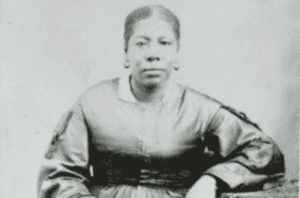Long, long ago, in a Sunday School class far, far away, a word came up. The word was “vainglorious” and the teacher asked if anyone could give its definition.
And then, in a wonderful stroke of irony, a man raised his hand and cited his vast education, then proceeded to say it meant self-conceit, boastfulness, and excessive pride. He was right, but he was amusingly unaware that he had just provided a vivid example of it, as well.
This need to ring one’s own bell is a form of vanity we don’t often address in our meetings. Yet most Sunday School classes have three or four members for whom attendance is merely a platform for showing off. They come to correct the teacher, answer the tough questions, and remind the world that their children are all high achievers, their own lives are filled with remarkable accomplishments, and superiority is simply the burden they’ve been asked to bear.
Paul even writes about such people in his letter to Timothy, when he’s talking about charity and says, “From which some having swerved have turned aside unto vain jangling; Desiring to be teachers of the law; understanding neither what they say, nor whereof they affirm.” (Timothy 1: 6-7)
Humility is a slippery thing, after all. We want it, but we don’t want to actually suffer in order to get it. And, once we’re riding high again, many of us tuck it into the back of a drawer and leave it there until next time we are cornered and forced to bring it out.
But how much better might we be if we carried it around with us, instead? What if, when we know an answer, we pause to see if someone else might have some insight on that? What if we let people ask questions that reveal their ignorance, yet lead to moments of growth and learning? Those times are infrequent when a class know-it-all is likely to interrupt with his own contributions, and make the less enlightened hesitant to speak up. And what of the newly baptized member who comes away completely intimidated by a classmate’s vast gospel knowledge? It might take years before that person feels able to enter the discussion.
I’ve watched vainglorious class members for years, and have noticed that they never ask questions. Never.They are not there to learn, so much as to posture. They honestly believe they already have all the answers.
Conversely, I’ve watched highly educated Institute instructors sit quietly with no need to chime in, even though they could probably teach the class in three languages without even preparing. They generously let the teacher and students explore the subject at their own pace, confident in their knowledge and free from the bragging pride that propels so many to raise their hands at every opportunity.
Ialways liked knowing the answer and being an enthusiastic hand-raiser in grade school. But, as an adult, I’ve learned it’s not necessary to be first off the starting line. Instead I like to hang back and see if some of the shy members might want to interject. And I try to give myself the “two comments” limit, and even then to wait until no one else is volunteering, and the teacher is almost uneasy about it. I also try to suppress the comedy gene, keeping humorous comments to a minimum. After all, the whole point of the class isn’t to be entertained; it’s to bring the Spirit, so people can be instructed by the Holy Ghost. Humor has its place-even Church Leaders employ it-but it’s used sparingly.
And what I’ve also discovered is to cut the vainglorious some slack. Some people live such discouraging lives of constant belittling at home and at work, that riding high in Sunday School class is the highlight of their week-they feel undervalued everywhere else. Others are so competitive that they can’t resist out-doing those around them, entirely unaware of how they come across. Some are so deprived of attention they will seek it in any venue they can, desperate for acceptance. Still others struggle with pride and the need to prove themselves, not unlike the big-house-flashy-car folks: they want to impress you and gain your approval. Most act self-important because they are insecure and secretly suspect they are lacking.
There are a dozen reasons why people show off, and every one of them is sad. When you realize this, you have compassion for these people, instead of annoyance. You want to help them to a happier place where they’re comfortable just as they are. You realize their arrogance is a faade, and that underneath they’re lonely and feel rejected. Here’s a case where those “whose hands hang down” are actually raising them up to fool you.
So what can you do to help the vainglorious? Most people are so irritated by braggarts that they give them the cold shoulder, roll their eyes, and distance themselves. But this is exactly the worst response; in fact it escalates the problem because now the know-it-all has to try even harder to prove his worth. You will be creating a monster of sorts by dangling your approval out where he cannot reach it. Their need to perform now includes a note of panic.
Sunday School should be a place of spiritual enlightenment, a place where our testimonies grow and where the Holy Ghost can whisper truths to our hearts. This doesn’t happen as well when one person monopolizes the feedback. Wise teachers can limit their input, but we class members can help as well. Instead of sitting there resenting the wise-guy (and doesn’t that drive away the Spirit, too?) we can exercise charity and understanding. We can remember the core reasons why a person is driven to show off in the first place. Isn’t that the sort of compassion you’d want people to have for your grown child if he were doing this? Then it’s probably the way Heavenly Father would want you to lovingly help a ward member as well.
Joni Hilton’s latest book is just out! “FUNERAL POTATOES-THE NOVEL” (Covenant Communications) is now in LDS bookstores. Book signings are listed at jonihilton.com.
Hilton has written 17 books, three award-winning plays, and is a frequent public speaker and a former TV talk show host. She is also the author of the “As the Ward Turns” series, “The Ten-Cow Wives’ Club,” and “The Power of Prayer.” Hilton is a frequent writer for “Music & the Spoken Word,” and for many national magazines.

















